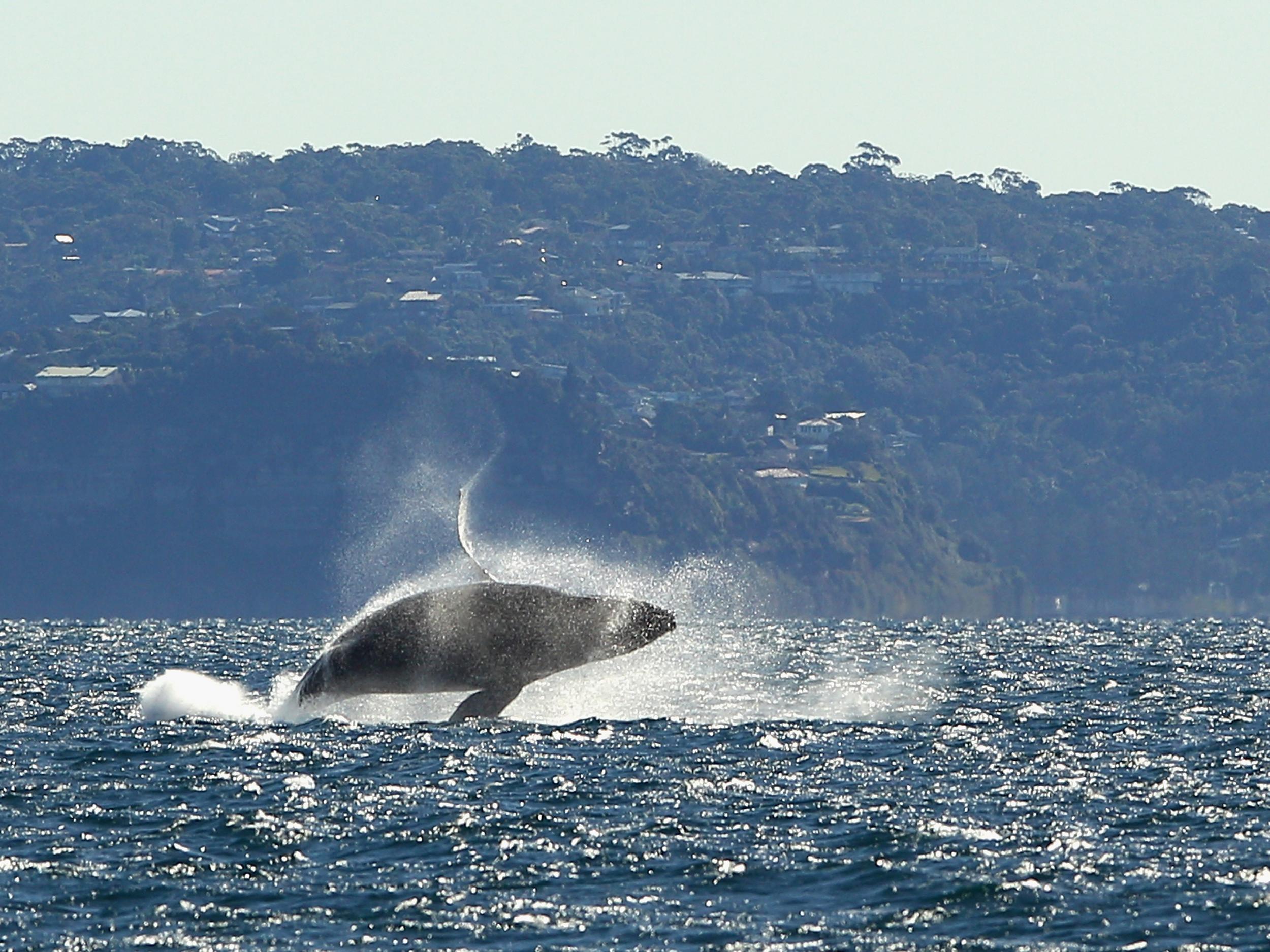Whales and seabirds at risk from deadly plastic and nappies after 80 shipping containers go overboard
Call for industry chiefs to take more responsibility for pollution after cargo falls off vessel near Sydney

Nappies, sanitary products and surgical masks washed into the sea in a shipping container accident will pose a threat to migrating whales and seabirds, scientists have warned.
They fear that if the birds or mammals or consume the debris, it could kill them through choking them or being fed to young.
Dozens of items spilled into the ocean when 83 shipping containers fell from a vessel off the coast of Australia during storms on Friday.
A helicopter scoured the coastline off New South Wales for the 40ft containers as debris started to wash up on Sydney beaches.
The flotsam also reportedly included plastic containers, bicycle parts and building supplies.
Maritime officials who issued an alert advised swimmers to avoid the area and asked anyone in boats to report sightings of the flotsam to the Australian Maritime Safety Authority.
Environmentalists say it may also pose a hazard to migrating humpback whales along the coast.
Will McCallum, head of oceans at Greenpeace, fears that seabirds and marine life will be at risk through eating smaller items that would choke them or fill up their stomachs and prevent them eating real food.
But the longer term risk is from the plastic breaking down into microplastics and being consumed by plankton, he said.
“It could then work its way through the food chain and the toxicity will increase: there have been increases in PCBs [damaging chemicals] found in the blubber of seals and whales, so in the longer term it’s damaging to all sea creatures,” he warned.
Mr McCallum, the author of How to Give up Plastic, called for patrol boats to get to the area as quickly as possible to carry out a thorough clean-up and for the shipping industry to take more responsibility for plastic pollution, as well as more punitive measures generally to be introduced.
Humpback whales are commonly seen off the Australian coastline from May to November, on their annual migration route to the Pacific Ocean for winter breeding, returning in the spring.
Volunteers launched a big beach clean-up, with locals and holidaymakers collecting items including containers of emu oil, lavatory-paper packaging, thousands of foil lolly wrappers and clocks still in their packaging, ABC News reported.
The Taiwanese-owned, Liberian-registered cargo ship, YM Efficiency, was making its way from Taiwan to Sydney when it hit rough seas and rolled heavily. As well as the 83 containers lost overboard, another 30 were reported to have been badly damaged.
A spokeswoman for the Yang Ming Marine Transport Corporation that owns the vessel said there were no dangerous goods or marine contaminants inside.
Roads and Maritime Services executive director Angus Mitchell warned swimmers against going into the water until a clean-up had been done.
“A full manifest of the cargo on board the vessel, and the condition of the vessel, is being sought,” he said.
“It's now the vessel operator's responsibility to recover and remove the 40ft containers.”
The accident happened just hours before a pilot whale in Thailand was killed by consuming more than 80 plastic bags.
Join our commenting forum
Join thought-provoking conversations, follow other Independent readers and see their replies
Comments
Bookmark popover
Removed from bookmarks